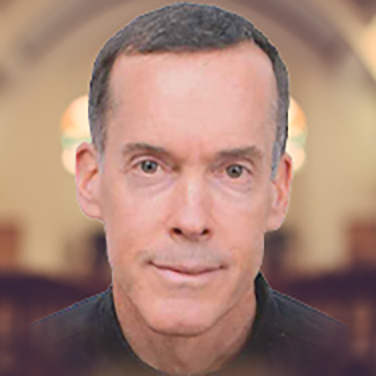Podcast: Play in new window | Download (Duration: 37:59 — 26.2MB) | Embed
Subscribe: Apple Podcasts | Spotify | Amazon Music | Android | Pandora | iHeartRadio | JioSaavn | Podchaser | Gaana | Podcast Index | Email | TuneIn | Deezer | Anghami | RSS | More

Pure Faith in Contemplative Prayer – St. John of the Cross: Master of Contemplation with Fr. Donald Haggerty
Fr. Haggerty explains the natural evolution of prayer, such as the Rosary, which may simplify over time as the soul becomes more attuned to God. This simplification reflects a deeper spiritual maturity, where prayer focuses less on intellectual or visual stimulation and more on surrender and love.
Faith and love guide us through the “darkness” of contemplation, leading the soul toward a hidden encounter with God. He shares the image of a blind man led by faith and love to illustrate the trust and surrender needed in the contemplative journey.
There are challenges in solitary prayer, and we must be cautious of self-oriented desires for spiritual experiences. True contemplative prayer involves surrendering expectations and allowing God to guide the soul in unpredictable ways. This profound journey of prayer is not about techniques or methods but a personal encounter with God, supported by silence and the fruits of love and service.
Discerning Hearts Reflection Questions
- Simplicity in Prayer: How has your prayer life evolved over time, and do you find yourself drawn toward a simpler, more heartfelt approach?
- Faith and Love as Guides: In what ways do you trust faith and love to lead you through spiritual darkness or uncertainty in your journey with God?
- Encounter vs. Knowledge: Do you prioritize knowing about God intellectually, or do you seek a deeper, personal encounter with His presence in your prayer?
- Authentic Transformation: How does your prayer life inspire changes in your daily actions, particularly in demonstrating greater love, humility, and charity?
- Surrendering Expectations: Are you willing to let go of specific expectations or desired experiences in prayer to allow God to work freely within you?
- Silent Commitment: How can you incorporate moments of silence into your daily routine to foster a deeper relationship with God?
- Seeing Christ in Others: How do you encounter Christ in the poor, the suffering, or those in need around you, and how does this shape your spiritual life?
- Praying for Others: Is your prayer life marked by acts of charity, such as interceding for strangers, the dying, or those in crisis, beyond your personal intentions?
- Avoiding Spiritual Self-Absorption: How can you ensure that your prayer does not become self-focused but remains a genuine offering of love and surrender to God?
- Living the Fruits of the Spirit: What evidence of the fruits of the Spirit—like peace, patience, and kindness—do you see as a result of your contemplative practices?
An excerpt from St. John of the Cross: Master of Contemplation
“In this case, under the influence of deeper faith, the cooperation involves a mortification by the intellect: an emptying of the desire for spiritual gratifications that can be enjoyed by the intellect in the life of prayer. These can be sought in a way that becomes an impediment to the pure pursuit of God for himself alone. A “complete pacification of the spiritual house” (AMC 2.1.2) is required that will “quiet down” the impulse to pursue experiences of an intellectual or imaginative satisfaction in prayer. This “ascetical” task for the intellect in the interior life of prayer entails, in a telling phrase, “the negation through pure faith of all the spiritual faculties and gratifications and appetites” (AMC 2.1.2). What this “pure faith” will mean as a virtue of the intellect in contemplation needs to be explained with some care. For the intellect must cooperate in its own purification precisely through this exercise of pure faith. Taking us farther along in explanation, and referring to the stanza of his poem, Saint John of the Cross comments: “The soul, consequently, affirms that it departed ‘in darkness, and secure.’ For anyone fortunate enough to possess the ability to journey in the obscurity of faith, as do the blind with their guide, and depart from all natural phantasms [images] and intellectual reasonings, walks securely. . . . For the less a soul works with its own abilities, the more securely it proceeds, because its progress in faith is greater” (AMC 2.1.2, 3).”
Haggerty, Donald. Saint John of the Cross: Master of Contemplation (pp. 67-68). Ignatius Press. Kindle Edition.




